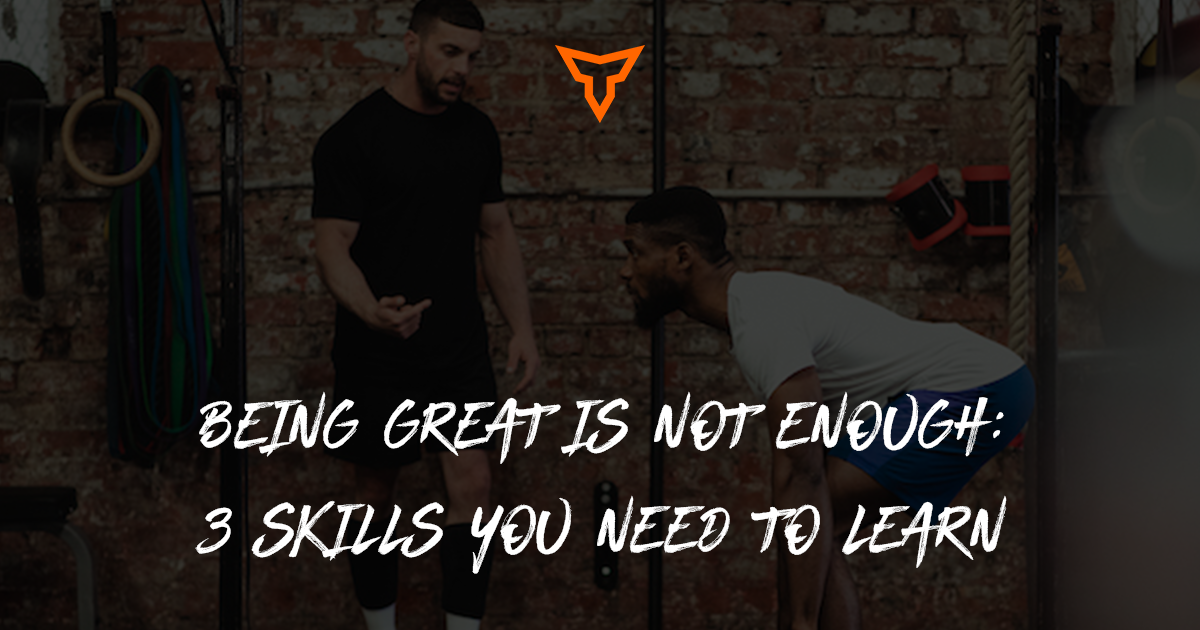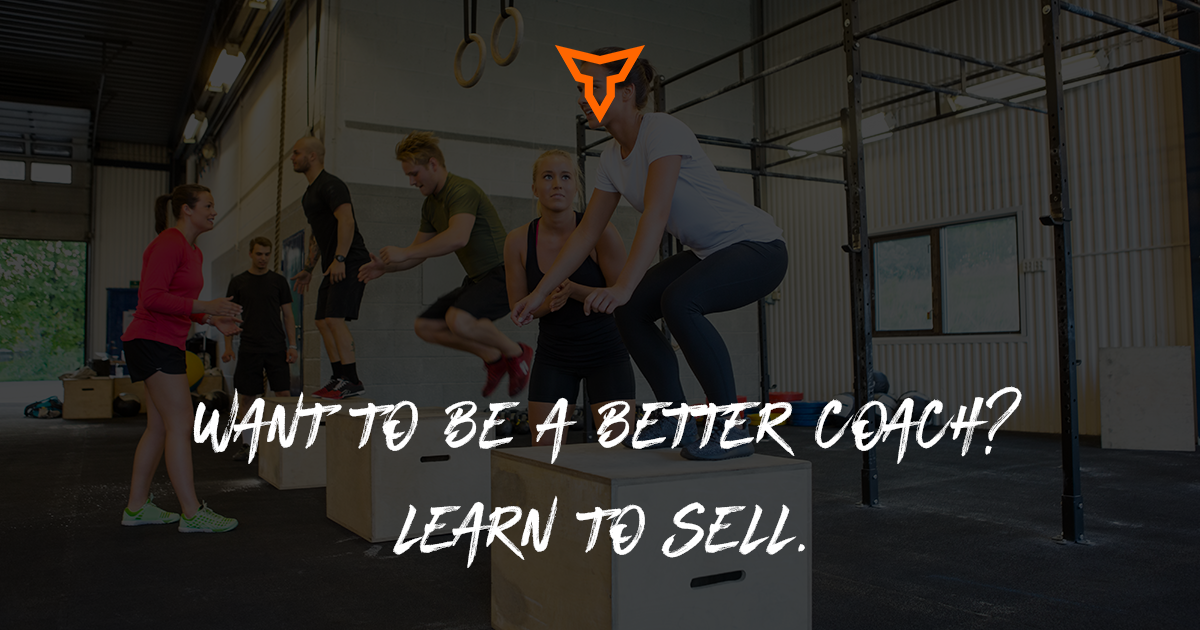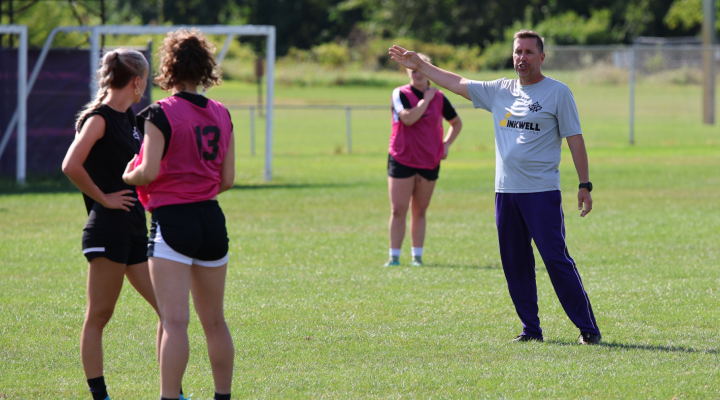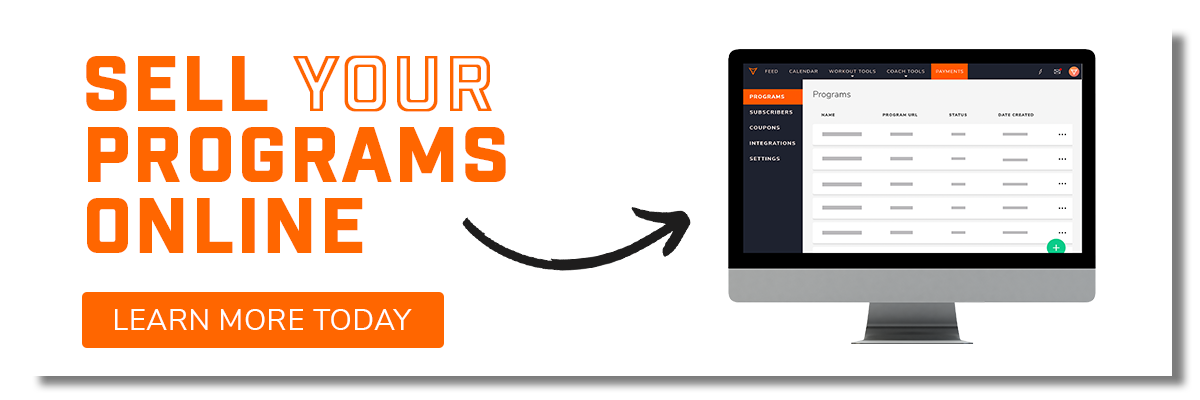Private Sector Internships: Why and How
When talking about internships, we tend to think of college weight rooms or professional performance centers. Most young guns in the iron game dream of working with professional athletes or D1 superstars, all looking to get their big break in the industry. While the college and professional sectors have their hands full filtering applications, the private sector tends to get lost in the shadows of grandeur.
Although I’m biased, I firmly believe private sector internships can prove to be an invaluable learning experience for any strength coach intern looking to make it in the iron game. In many cases, the learning experience can parallel (if not exceed) many of the opportunities found in a college or professional setting.
Why Choose Private Sector Internships?
Relationships
No other setting or environment allows you to build meaningful relationships with a variety of athletes and clientele like the private sector. It probably doesn’t sound grand, but the impact potential you have to change someone’s life is tenfold in private facilities. Athletes of all ages, sports, and experience levels look to you for guidance on getting to the next level; you become the leader of their athletic success. More than that, the opportunity to work one-on-one with them provides a mentorship experience that lasts a lifetime.
Diversity
Athletes and clients of all shapes, sizes, and backgrounds frequent private sector facilities. As an intern, you want to become an extremely good generalist in order to become a great specialist; there’s no better place to diversify than a private sector weight room. You might work with a high school basketball player on Monday, a professional baseball player on Tuesday, college volleyball players on Wednesday, and average Joe's on Thursday. You might work with athletes from opposing teams or regular clients with opposing goals. You might teach a 12-year- old how to love the weight room in the morning, help a corporate executive stay in shape at noon, and prepare an athlete for the combine in the evening. If you wish to expand your coaching portfolio beyond measure, look no further than the private sector.
Individual Attention
Let’s face it, as an intern, you want to ensure you get the individual attention you need to be a better coach. While you may get lost in the shuffle as part of a college or professional program, the private sector provides more attention on your unique development. Why? We do it all the time already with clients.
The reality is that private sector facilities only survive if people pay them for service. If they do a poor job, people don’t pay. If people don’t pay, coaches get fired, and facilities flounder.
Customer care and experience are at the forefront, which means you are too. As an intern of a private facility, you’ll get more one-on-one attention and (most likely) more responsibility. Private facility owners tend to have more skin in the game and want to build the next great coach. Put your application in the pile, it might be you.
How We Built Our Private Sector Internship Program
This next section is for the coaches and owners of private sector facilities. As a fellow private facility owner, it is my responsibility to ensure the private sector keeps growing forward. Creating a meaningful internship program to develop more great coaches is a crucial step in this endeavor. In the following paragraphs, I’ll break down our thought process as to how we created our internship and the focus points of our curriculum.
Know Thyself
Before kicking off an internship program, do some reflection on your current operation. Who do you work with? What are your strengths? What are your weaknesses? What are your unique factors? How many interns do you feel you can effectively teach or mentor? We created a quick checklist with the deep questions to help put these points on paper; this helped us later when looking to advertise our internship program. Build a firm understanding of your operation first; how you run your weight room will play a role in attracting the right interns.
Lastly, consider the goal of your proposed internship. Are you looking to groom future employees? Are you looking to provide knowledge in a specific area of training or with a specific demographic (eg: elite baseball players)? Are you looking to prepare candidates for their future in the field elsewhere? For us, we wanted to groom the next best coach and potential hire; we don’t hire from the outside. Consider what you want your interns to take away from your program once their time with you is complete. This mutual understanding will help bring more candidates to your program who seek the same knowledge base.
Know Thy Student
You’ll want to consider your target audience. Internship opportunities range from current undergraduate students all the way to current professionals in the field. Each demographic will have very different needs in terms of development; you can’t assume you will cater to everyone. While we may encourage learning in any environment, we can’t be naive. Every candidate has different needs and goals with different learning gaps. We catered our internship for graduate students fresh out of university. After reviewing our program and curriculum, it was evident that a firm background in exercise science was needed to be successful. Furthermore, our interns would need time to coach our athletes and study our curriculum; anyone pursuing an undergrad would likely fail out with our added workload. Decide who your setting (and future curriculum) is most appropriate for.
Next, think of the current student of today. We were all once one ourselves, full of robust energy and roaring to go. We probably thought we knew it all at one time or another. My staff and I see that same line of thinking with every new intern batch we select every semester. Too many students quote their textbook or research papers; many of them lack calluses on their hands. The egos run high and the experience runs low; many students lack any practical application abilities. Knowing this, we can better accommodate our program to fill in these gaps. It’s our job to provide an environment for interns to practice, fail, practice some more, and fail less. Remember, qualified doesn’t mean competent.
Brainstorm A Curriculum
This is where you can get creative and have some fun. Knowing your current operation, brainstorm topics and lessons catered to your environment and clientele. If you implement O-lifts frequently, perhaps a lesson on how to coach athletes through them. If you program using the conjugate system, maybe teach a lesson on how you use it with your athletes. Let the ideas flow before funneling down to the specifics.
For us, we have a very diverse group of high school athletes that frequent our weight room so our curriculum focuses heavily on building youth athletics and fundamentals. Whatever you decide to implement in your program, always ensure relevance to your operation and target student group. Remember, you can’t be everything to everyone.
Establish A Timeline
Once you have your content ideas, you need to establish a timeline. If you’re focusing on graduate students, perhaps a summer internship would be most appropriate. If catering to working professionals, maybe a fall or winter semester may be more appropriate. Once you establish a season, think about how long you will need to effectively teach your interns while providing ample time to practice new concepts.
Our semesters run 12 weeks in length with interns expected to meet a minimum of 20 hours per week at our facility. Homework and case studies don’t count towards floor time. Your program may require more hours or less, it’s really up to you. While you may have the freedom to design a timeline, keep in mind your target student group. They have lives outside the weight room and might have part-time jobs or family to attend to. Implementing a structure with some flexibility would be a wise choice in my opinion.
Set A Curriculum Structure
Now that you have some content and a timeline, spend some time breaking down each week. Think about what topics you want to cover and decide a logical flow that builds week to week. To supplement learning, you might consider adding video content or hands-on assignments. To test retention, you might have interns write a quiz or exam every week. In our internship program, we assign our interns weekly readings, videos, and case study projects; all of which were designed in-house. We have a weekly professional development meeting where interns write a quiz, present their case studies and portfolio projects. After a hefty discussion on the content assigned for the week, we finish with a group lift focused on using implements discussed throughout the curriculum.
It may sound complex, but it doesn’t have to be. Our curriculum structure has been adapted semester after semester and year after year. It’s a permanent work in progress and yours should be too. Start simple and ensure the quality of your curriculum content first; you don’t have to reinvent the wheel. If you don’t want to write your own content, simply archive relevant articles and videos for interns to study. Ensure you provide ample time for questions and floor time practice throughout each week; you can teach concepts, but not calluses.
Floor Time
Having a curriculum is nice, but it’s the floor hours coaching that makes a better professional. I can’t stress it enough, your interns NEED to get tons of floor time honing their coaching craft. Most private sector facilities have a diverse range of clientele, perfect for diversifying an intern’s experience. In most cases, diversity is limited to athletes of various sports in the college setting and even more so at the professional level; as a private facility operator, you should leverage your broad clientele as a selling point for coaching experience opportunities.
At our facility, our interns are expected to meet a minimum of 20 hours per week coaching our athletes or clients on the floor. As the weeks progress, they earn more and more responsibility and get opportunities to run the room for team sessions or work with our professional athletes. Notice I said they “earned” their opportunities. While it's important to provide ample floor time, you need to ensure you are able to monitor it. Should interns not demonstrate competent coaching skills, you may choose to have them observe or practice coaching on the other interns or staff. As Viper said in Top Gun; “Keep sending him up”.
Evaluating Your Interns
The easiest way to objectively evaluate your interns is through tests and quizzes. We typically have our interns write a weekly quiz instead of cumulative tests. We aren’t looking to trick them, but rather fairly evaluate their knowledge of our teachings. Simple multiple-choice tests have proven to be easiest for us; the number of questions or question types is all up to you.
Other useful evaluation tools include sample case studies, coaching scenarios, or final projects. Each semester, we take a handful of our athletes and use them as sample programming case studies; they each have their own unique profiles including sport, position, limitations, and goals. Each week our interns are assigned a case study (with an appropriate timeline) to program and present to our group. This allows us to see their line of thought and provide subjective feedback as to what each member of our group might do instead. It also provides a good base for discussion and ties back into our assigned readings. Consider adding case studies or scenarios to your internship.
Other Useful Additions
If you have a curriculum, ample floor time for coaching, and an assessment protocol, you’re pretty much all set for a successful internship experience. Some other additions that we've found useful in our program include the implementations of what we call “portfolio projects” and staff lifts.
With our portfolio projects, we want to help interns build professional content to add to their coaching resumes. We’ve found many young coaches lack some highlighting content in their portfolios; our portfolio projects help change that. Each week, interns create exercise videos, tips, lectures, and other video content to grow their portfolios. We help them create a professional resume and social media accounts to highlight the content they create. We also provide publication opportunities through our website for interns who wish to take a crack at blog writing. These simple projects implemented weekly not only build a more unique coaching portfolio but also helps establish basic writing skills and social media use.
Having weekly staff lifts is a staple in our facility. It allows for a more relaxed atmosphere as we all bend the bar together. If appropriate, you may want to assign an intern to design the workout each week. Encourage them to try new concepts from your curriculum or utilize new tools that may be unfamiliar to them. Staff lifts build an awesome team culture and allow free learning through its more casual atmosphere. Bending the bar in good company has been proven invaluable.
In closing, while they may not always possess the glamour of their college or professional counterparts, private sector internships have their own distinct factors that offer a ton of value for up and coming professionals. Do your research and find a facility that challenges your point of view; aim to be mentored by coaches with unique experiences that differ from your own. I would encourage any strength coach, novice or veteran, to consider a private sector internship experience as their next step towards their respective careers.
Subscribe to our blog
Subscribe to receive the latest blog posts to your inbox every week.
Related posts

Being Great is Not Enough: 3 Skills You Need To Learn

If You Want to Be a Better Coach, Learn to Sell



